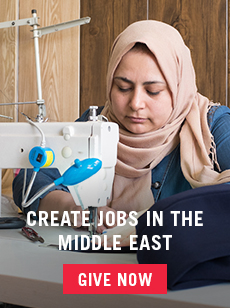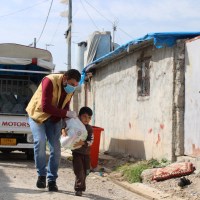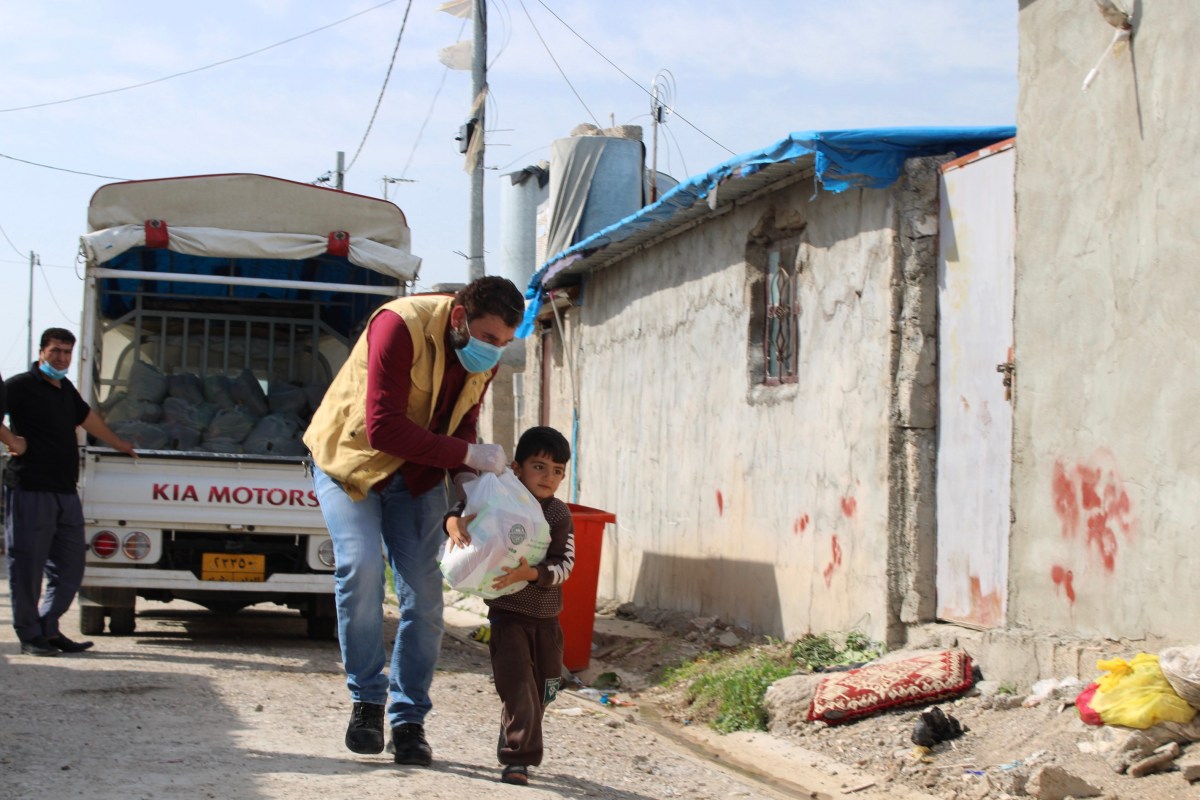This is a time like no other in our lives. We’ve never seen our schools closed, our businesses shuttered, our lives upended and cinched shut.
We don’t know exactly how or when this will end. But when it does, will we be changed? Will we take what we’ve learned during this time and live our lives differently?
We can be people who…
Consider those on the margins.
More than ever, we’re aware of those who are already isolated and vulnerable. As millions have lost their jobs, we have greater empathy for those who have lost their jobs or struggle to earn a livable wage. And we know the pain and loneliness of those who are isolated, whether by sickness or disability.
We’ve learned to look for which grocery items are labeled for WIC and to try to leave them for those who need it. We’ve learned to write letters and notes to those who can’t leave their homes.
Our perspective has widened, our empathy deepened.
We can take that into our lives as we go forward, keeping in mind those who might still need our awareness. Check in on the single mom struggling to make ends meet. Pay a visit to the elderly neighbor who can’t go out and doesn’t have family nearby to visit. Donate to the local food bank. Volunteer at the homeless shelter.
We can get to know those outside our normal circles so that if another crisis would strike, our social safety net is wider for us all.
Take care of the earth.
We’ve seen the way COVID-19 has changed us and our world. But the lack of human movement has also had a drastic impact on the earth.
Pollution in New York City is 50% of what it was at this same time last year. China has seen a 25% decrease in carbon emissions. The canals of Venice, Italy are reportedly clearer than ever before. Seismologists have reported a quieting of seismic noise.
For so many, the dawning of spring as COVID-19 set in was a beacon of hope in the midst of so much unknown. The blossoming of flowers and budding trees gave something to look forward to, a promise that life could grow and change and go on.
As we look toward a return to “normal” life, how can we continue to care for the earth? Can we keep emissions lower by walking and biking, foregoing unnecessary trips? Can we remember our gratitude for outside spaces, for seasonal changes, and do more to protect and nurture the earth?
Talk about how we’re really doing.
When someone asked us how we were doing before, it was easy to hide. We could talk about what was going on at work or with the kids. We could talk about upcoming events we were excited about or a recent social gathering.
That’s all been stripped away. And what’s more, we’re all in the same boat. So we know the other person isn’t totally okay, because none of us are. You can’t be completely good in the middle of a pandemic.
So we answer honestly. We start to put words to that clench in our chest. We recognize that when we snapped back at our kids or our roommates or our partner it was because we’re scared or tired or overwhelmed or lonely.
And we’ve learned to hold it, together. To answer honestly and listen honestly. Because we can’t fix it, not really. But we can empathize. We can be in it together.
Slow down.
Life has moved at a slower pace. The days of the week hardly seem to matter when they’re not marked with the usual activities and events.
But in the midst of this, we can learn the value of slowing down. Of family dinners and movie nights. Of going for walks and bike rides together. Conversation and games and time spent together because we had no place to be.
Before we sign our kids up for another sport or activity, before we RSVP yes or immediately sign up for the next thing, we can pause. We can check our calendar. We can remember that space and a lack of plans has its own beauty, value, and opportunity.
Appreciate our community.
They say it takes a village and after COVID-19, this holds truer than ever before. We understand how much others contributed to our lives, our wellness, our convenience and happiness.
We see anew how much our teachers did for our children every day—not only teaching them, but listening, preparing, supporting, loving, and coaching them.

Those who stock shelves at the grocery store, who clean stores and hospitals, who fill prescriptions and deliver mail. Those who fulfill online orders, answer phones, grow and harvest food, work the cash register—may we never take them for granted again.
The small businesses that create the fabric of our community, that give it convenience, safety, vitality, and life—we’ll understand what they bring to our neighborhood, how they shape our experiences and introduce us to new foods, new cultures, new perspectives.
We understand at a deeper level what we each contribute to each other. Services and skills, yes. But also relationship, experience, care. We see the ways we support each other and how crucial the ties between us are.
Address inequality.
In some ways, COVID-19 feels like it levels the playing field, in that we’re all susceptible to infection. Anyone can contract the virus.
But the truth is, COVID-19 affects minorities disproportionately more than whites, exposing racial divides across the United States. US Surgeon General Jerome Adams noted that people of color are “socially predisposed to coronavirus exposure.”
“Socially predisposed” refers to the social and economic factors that make minority populations more at risk of contracting and dying from coronavirus. Due to centuries of racial injustice, black Americans often earn less. They have less generational wealth. Many work in jobs now considered essential—factories, food services, transportation. These jobs put them on the frontlines, literally in harm’s way.
But decades of prejudice and poverty have also left many without access to quality healthcare, or with chronic health issues, both of which increase their risk. They also are more likely to live in crowded neighborhoods, houses, and apartments—making it difficult to practice socially distancing.
Those able to work from home and socially distance more easily are disproportionately white middle and upper class. They are equally at risk to contract the disease, but better able to organize their lives to limit their risk of exposure.
Addressing racial injustice is uncomfortable work, especially when we feel like we’re not personally responsible for the injustice. But we can grow our awareness. We can educate ourselves on systemic social and economic structures that contribute to inequality.
Understanding them is the first step to dismantling them and creating a world where we can all rise together.
Remember that we belong to each other.
We’ve been united by COVID-19 because it doesn’t discriminate between culture or race or economic status. Anyone is susceptible. Anyone can be a carrier. And COVID-19 anywhere, for anyone, is a threat to all of us, everywhere.
At the very beginning of the pandemic, we saw people coming together across divides as we stepped up to care for each other. We were united in our experience.
But as the weeks have gone on, divides have reemerged. Republican versus Democrat. Stay home versus reopen. Conflicting arguments about next steps and power. Blame and finger-pointing.
We need to remember again that we are more alike than we are different—and that our differences can be beautiful. That we belong to each other, across oceans and political schisms.
Our solidarity is what makes us strong, not becoming entrenched in our own beliefs. Listening to each other, learning from one another. Asking questions, without judgment or assumption.
Differences can provide nuance and perspective. They don’t have to be a threat or something we rail against.
We can see ourselves in each other. We can start from a place of love and curiosity and opportunity. We can remember that we really are all connected.
The future is still uncertain. But soon we will be through this. Businesses will reopen. Schools will restart. Shelves will restock. Doors will open and friends will be together again.
Will we carry what we’ve learned from COVID-19 into the future? Will we press into the pain of the current situation and allow it to change us, transform us?


